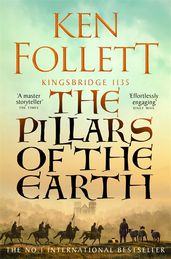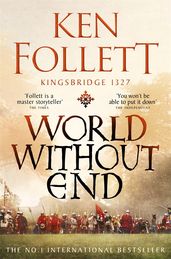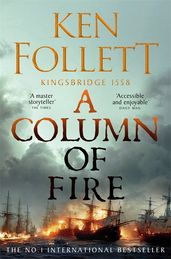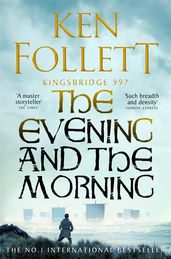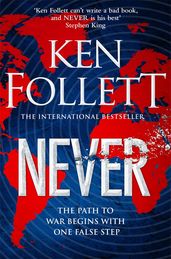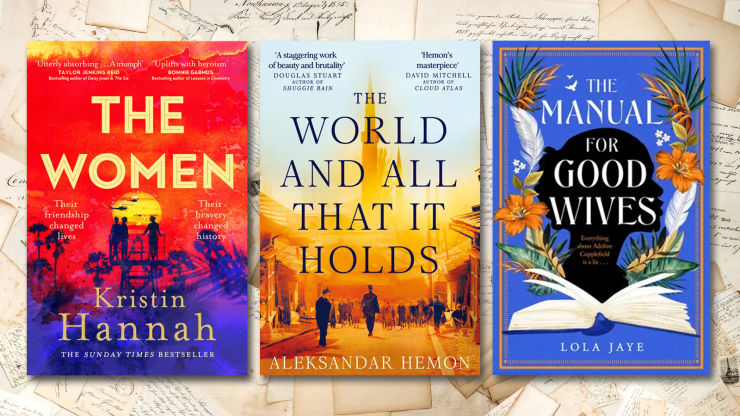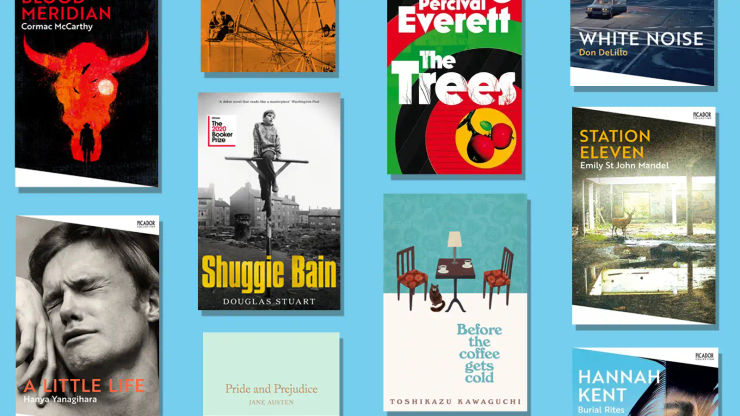Ken Follett's Kingsbridge books in order
Ken Follett is the author of over thirty books, including the much-loved Kingsbridge novels. Find out everything you need to know about this bestselling historical fiction series.

The Kingsbridge novels are historical fiction masterpieces by Ken Follett. Set in the city of Kingsbridge, Ken brings his rich expertise to this immersive and epic saga – full of ambition, love, power and family conflict. Here, find out more about his series and discover all of the books in order.
Looking for more historical fiction? Discover our edit of the best historical novels.
The Kingsbridge books in order
The Pillars of the Earth
by Ken Follett
The Pillars of the Earth tells the story of three people. Philip, prior of Kingsbridge, a devout and resourceful monk driven to build the greatest Gothic cathedral the world has known. Tom, the mason who becomes his architect - a man divided in his soul. And the beautiful, elusive Lady Aliena, haunted by a secret shame. As Tom and Philip meet so begins an epic tale of ambition, anarchy and absolute power. In a world beset by strife and enemies that would thwart their plans, they will stop at nothing to achieve their ambitions in a struggle between good and evil that will turn church against state, and brother against brother.
World Without End
by Ken Follett
On the day after Halloween, in the year 1327, four children slip away from the cathedral city of Kingsbridge. They are a thief, a bully, a boy genius and a girl who wants to be a doctor. In the forest they see two men killed. As adults, their lives will be braided together by ambition, love, greed and revenge. One boy will travel the world but come home in the end; the other will be a powerful, corrupt nobleman. One girl will defy the might of the medieval church; the other will pursue an impossible love. And always they will live under the long shadow of the unexplained killing they witnessed on that fateful childhood day.
A Column of Fire
by Ken Follett
Christmas 1558, and young Ned Willard returns home to Kingsbridge to find his world has changed. The ancient stones of Kingsbridge Cathedral look down on a city torn by religious hatred. Europe is in turmoil as high principles clash bloodily with friendship, loyalty and love, and Ned soon finds himself on the opposite side from the girl he longs to marry, Margery Fitzgerald. Then Elizabeth Tudor becomes queen and all of Europe turns against England. The shrewd, determined young monarch immediately sets up the country’s first secret service to give her early warning of assassination plots, rebellions and invasion plans.
The Evening and the Morning
by Ken Follett
The Evening and the Morning is a prequel to The Pillars of the Earth, and as such although it's the fourth book in order of publication, it's the first in Kingsbridge's chronology. It is the end of the Dark Ages and England is facing attack from both the Welsh and the Vikings. As the Middle Ages dawn, three very different characters will face a ruthless bishop who is desperate to increase his wealth and power. A young boatbuilder dreams of a better life for him and the woman he loves. A Norman noblewoman follows her husband across the sea to a shocking new world. And a capable monk dreams of turning his humble abbey into a centre of learning admired across Europe.
The Armour of Light
by Ken Follett
1792. A tyrannical government is determined to make England a mighty commercial empire. In France, Napoleon Bonaparte begins his rise to power. Unprecedented industrial change sweeps the land, making the lives of the workers in Kingbridge’s prosperous cloth mills a misery. Rampant modernization and dangerous new machinery are rendering jobs obsolete and tearing families apart. Now, as international conflict nears, a story of a small group of Kingsbridge people will come to define the struggle of a generation as they seek enlightenment and fight for a future free from oppression . . .
Here, Ken tells us more about the Kingsbridge Novels and how each book in the series covers a different period in the history of this much-loved fictional town.
If you love the Kingsbridge series, you might also like Ken Follett's thriller, Never:
Never
by Ken Follett
Visionary in scale and expertly researched, Never is a thriller that imagines an unthinkable global disaster. A stolen US army drone. A shrinking oasis in the Sahara Desert. A secret stash of deadly chemicals. Each is a threat to the delicate stability of global diplomatic relations, but when mishandled can create a catastrophic and international chain reaction that edges our world closer and closer to all out war. An undercover spy in the Middle East, a Chinese spymaster and a weary US president must all work tirelessly and to their utmost limits to stop the worst from happening. The only question is, in a game of brinksmanship can the inevitable ever be stopped?
